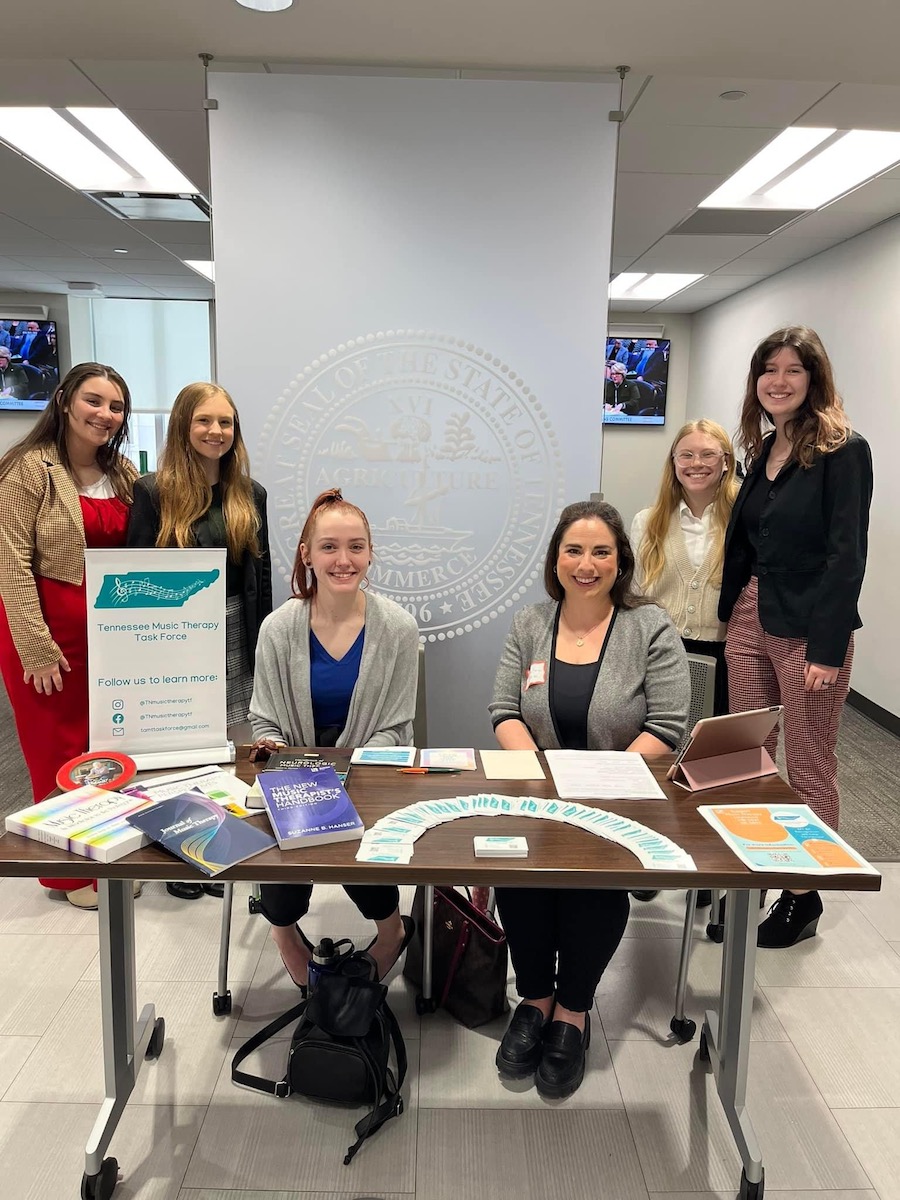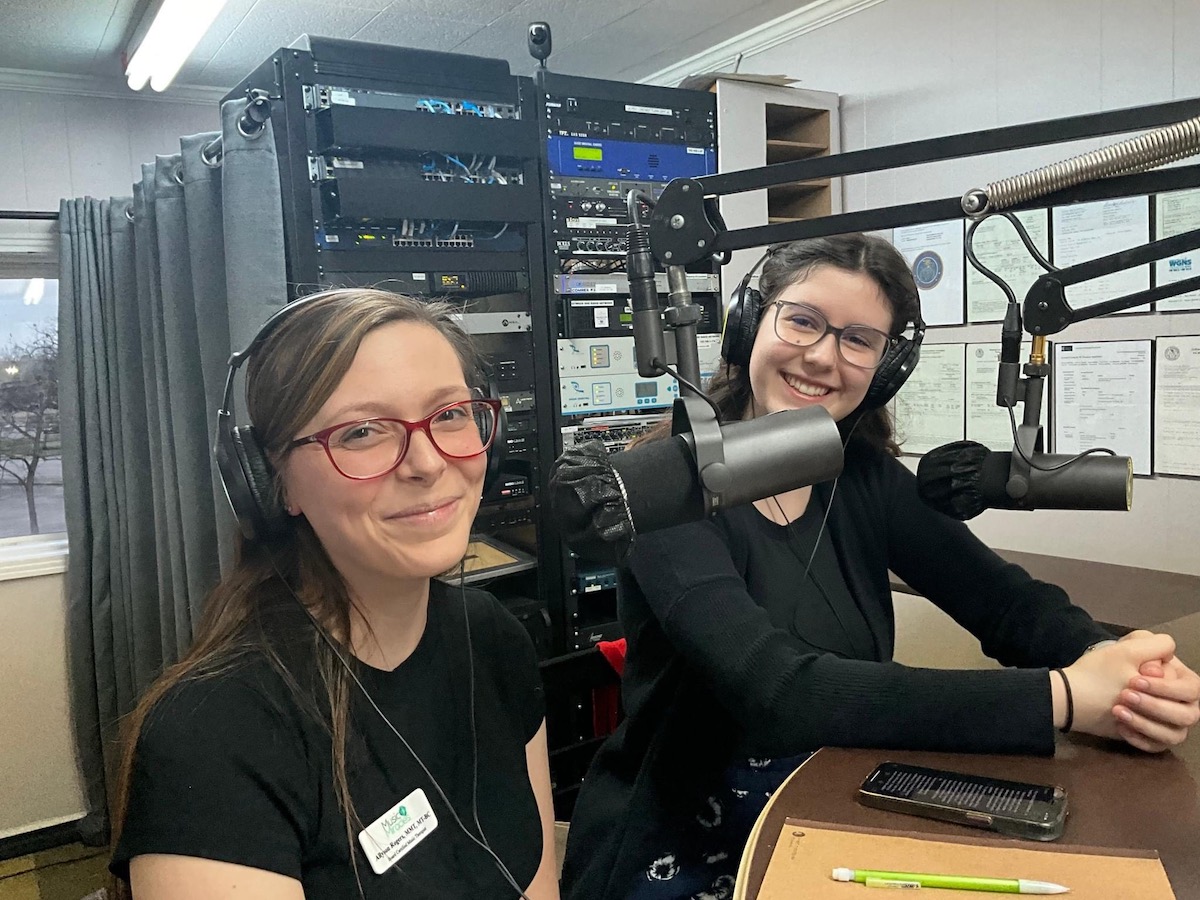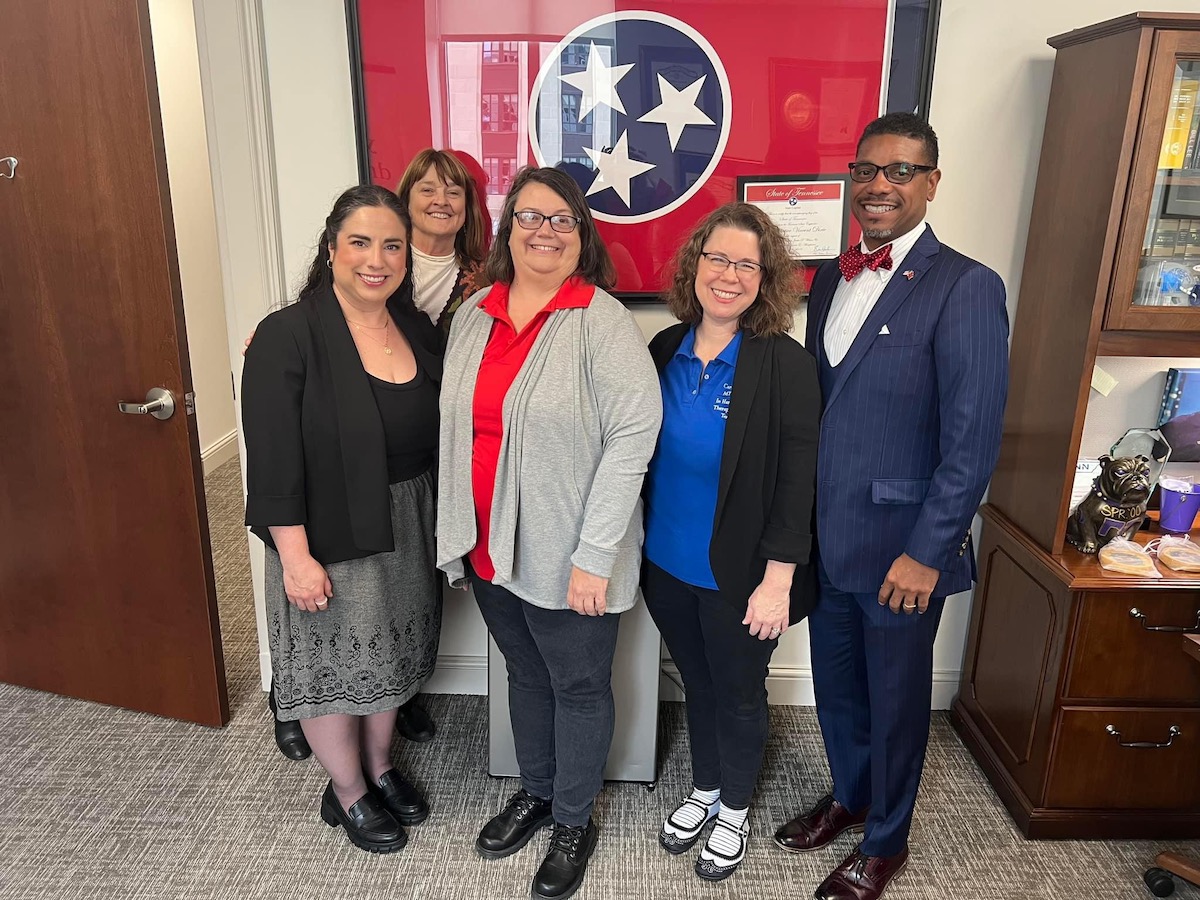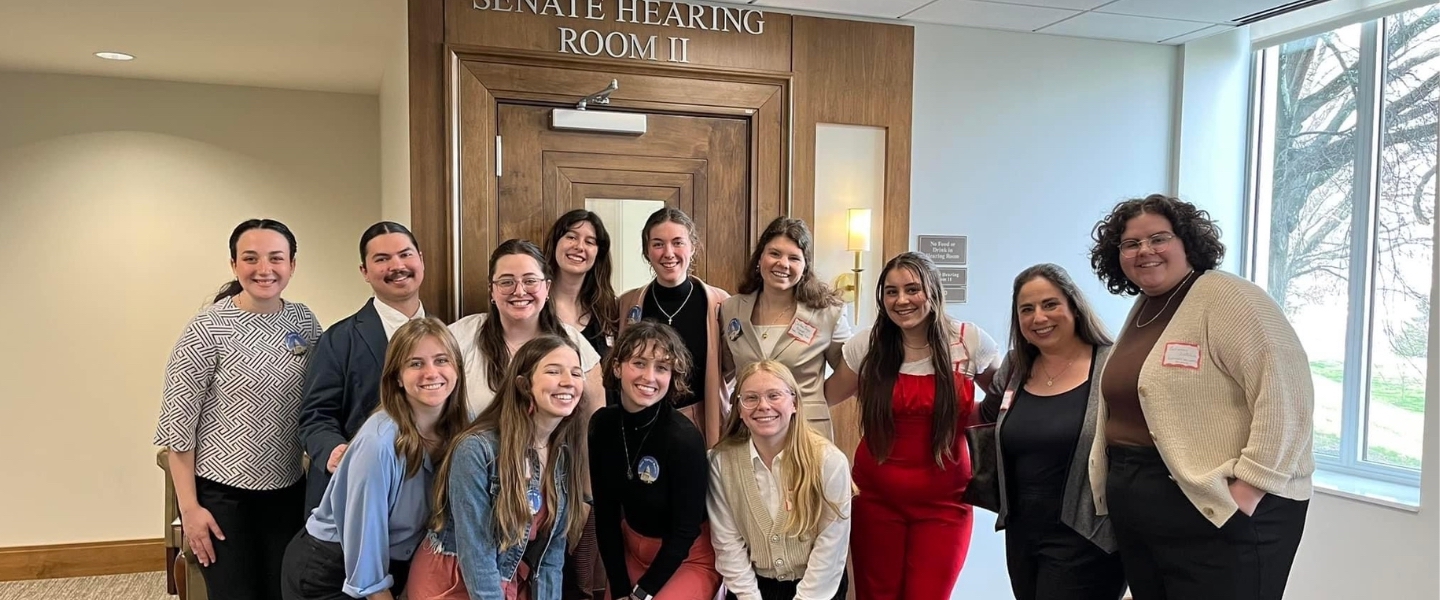 For many years, music therapists across the country have been working tirelessly to establish state licensure for their profession. At the forefront of this effort in Tennessee is the Tennessee Music Therapy Task Force.
For many years, music therapists across the country have been working tirelessly to establish state licensure for their profession. At the forefront of this effort in Tennessee is the Tennessee Music Therapy Task Force.
For the past year, this task force included a special representative - Belmont senior music therapy major Cassie Shearer, who served as the student liaison. As one of three universities in the state that currently offer a music therapy program, Belmont students located in the capital city made perfect sense for filling the role.
Shearer joined the task force in its multi-year push to pass legislation licensing music therapists in Tennessee through companion bills HB 0521 and SB 0898. While the Senate bill has already passed and been signed by the Senate Speaker, the House bill is awaiting the House Speaker's signature before heading to the Governor's desk to potentially be signed into law.
With these bills poised for final passage, licensure will provide official recognition, title protection and practice protection for music therapists in Tennessee. It will also ensure patient safety by requiring services from qualified practitioners and increase access to music therapy services.
"It was my job to be a point of contact for students — sending them emails, answering questions and getting student participation," Shearer explained. "Belmont's location in Nashville made me a really important connection, since I could physically speak to my peers about attending hearings, hill days and other events right here in the capitol."

This spring, Shearer provided testimony to a House committee about the extensive training music therapy students at Belmont and other programs undergo. She shared about her experience at Belmont and her required classes through the program - all her music major classes, as well as her science classes like psychology, biology and anatomy. Shearer told the legislators about the requirement for students to complete 1,200 clinical hours of training between practicum rotations and internships.
While she learned a lot about local and state government and what it looks like to be involved, Shearer said the main takeaway was the lessons learned about advocacy. "I learned how to advocate for my field, how to speak to somebody who knows nothing about the profession," she said. “It was great to observe how professionals spoke with grace and intelligence about the profession in a way that makes it palatable and understandable to the general public.”
One such professional was Dr. Alejandra Ferrer, coordinator of music therapy and associate professor of music therapy, who testified multiple times over the process of getting the licensure bills passed. She fielded countless questions about why licensing or licensure in Tennessee is important.
Ferrer explained, "You have high numbers of well-intentioned volunteers and musicians all across the United States referring to themselves as music therapists, labeling the work that they do as performers as therapy. Because of the lack of knowledge, regulation and understanding about the music therapy profession from both members of professional communities and the general public, confusion continues to grow."
Music therapy is a formal, intentional, evidence-based therapeutic process where techniques are systematically employed in individualized ways to effect change in the client. This process is entirely different from the work of musician volunteers. Ferrer said this difference needs to be acknowledged, ultimately, to protect the vulnerable populations who receive these services.
 "Nursing homes, primarily long-term care facilities, medical hospitals, mental health facilities – they hire musicians to engage in the work of a music therapist, often not knowing that formally trained professionals exist. Other times, the hiring results from lack of understanding pertaining to the music therapist's scope of practice, or simply, it may cost less to hire a musician versus a therapist. It's frustrating. This has resulted in jobs not being available for the people with the actual education and credentials as well as episodes of music-induced harm, something few people acknowledge, in certain clinical populations," Dr. Ferrer said. "This licensure offers us and the music therapy consumer a higher degree of protection."
"Nursing homes, primarily long-term care facilities, medical hospitals, mental health facilities – they hire musicians to engage in the work of a music therapist, often not knowing that formally trained professionals exist. Other times, the hiring results from lack of understanding pertaining to the music therapist's scope of practice, or simply, it may cost less to hire a musician versus a therapist. It's frustrating. This has resulted in jobs not being available for the people with the actual education and credentials as well as episodes of music-induced harm, something few people acknowledge, in certain clinical populations," Dr. Ferrer said. "This licensure offers us and the music therapy consumer a higher degree of protection."
Both Shearer and Dr. Ferrer are thrilled to see their advocacy pay off as Tennessee joins the growing number of states regulating the music therapy profession. It protects practitioners, patients and the future of this unique field combining art and science.
For Shearer, being involved with the Task Force was "an incredible learning experience" that supplemented her coursework. It allowed her to form connections that could benefit her career after graduating from Belmont's music therapy program this year, especially as she hopes to move back to Nashville to work one day.

"I believe in the importance of music therapy. It serves and meets needs that might not be able to be met by traditional therapies or by other health care services, because our modality is so different,” Shearer concluded. “Tennessee is just the next step in a national movement where music therapy will eventually be on the same playing field as PTs, OTs, nursing and teaching — all these other professions that have licenses and are validated within society.”

